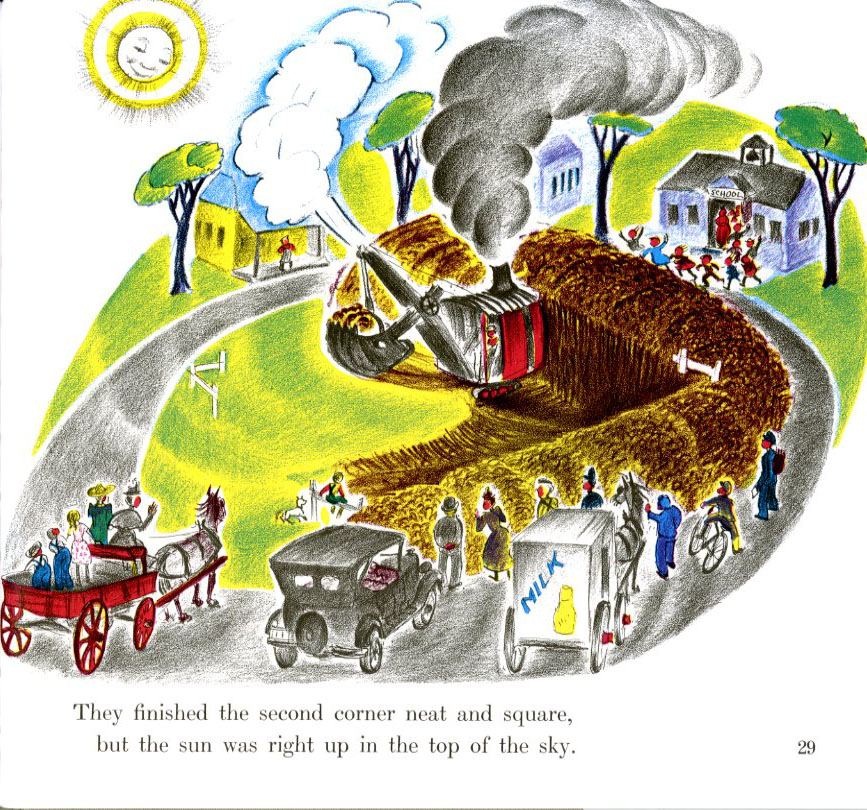
October 6-12 has been designated Great Books Week to remind us to use our time well by picking up excellent books. By asking questions such as “if stranded on an deserted island, what five books would you want?” or “what books do you read over and over?” the organizers hope to get us all to focus on the books that really matter in our lives.
I try to accomplish this kind of thinking every day on the Almanac. But since there are a few “great” books that haven’t easily fit any other category, I’ll take a look at them over the next week. And I hope my readers will weigh in with their list of five books that they can’t live without or the ones they read again and again.
Let me start with Virginia Lee Burton’s Mike Mulligan and His Steam Shovel, which explores one of Burton’s favorite themes—how the old order must make way for the new and still survive. A steam shovel, Mary Anne, originally named Bertha in the manuscript, “who could dig as much in a day as a hundred men could dig in a week,” finds her jobs taken away by newer, faster steam shovels. But with her champion, Mike Mulligan, at the helm, Mary Anne proves her worth. After digging a cellar for the town hall in Popperville, she stays there and becomes the furnace for the building.
Before Burton committed herself to any project, she read the story for at least a month to her two sons, Aris and Michael. If they didn’t want to hear it after that period of time, she felt it not worthy of moving to book form. An early lesson in reusing and recycling, Burton’s early drafts of Mike Mulligan found ready listeners in her sons and their friends.
But she struggled to find a satisfying end to the story. Then one of her sons’ friends, Dickie Berkenbush, presented her with the idea of installing Mary Anne as the town hall furnace. Children often help writers during the artistic process, but Burton did something extraordinary and generous. She credited him in the book. Hence after Richard Berkenbush became an adult, he was able to claim credit for his contribution to this classic. During his life he was always present at events for Mike Mulligan, enjoying the praise that Burton made it possible for him to receive.
Published in 1939, at the beginning of World War II, Mike Mulligan and His Steam Shovel remains one of the most frequently read, and reread, books of childhood and has become a cultural icon. In fact, more Americans have read Mike Mulligan and His Steam Shovel than have ever read any Pulitzer Prize–winning novel. If you haven’t picked up this heartwarming story recently, you’re missing one of our greatest books for children.
Here’s a page from Mike Mulligan and His Steam Shovel:
